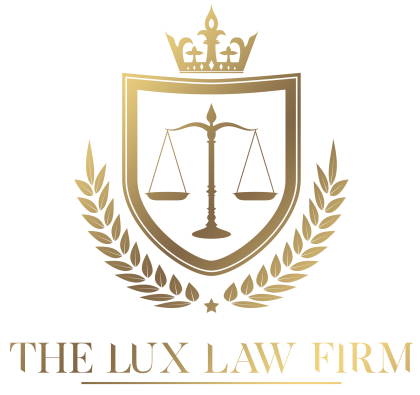What is the Difference Between Expunging and Sealing a Criminal Record?
A criminal history can follow you for the better part of your life, inhibiting your ability to find employment or enroll in education opportunities. Even if criminal charges don’t result in a conviction, the arrest record and the prosecution stay on your record. Luckily, the law allows removing these records from your criminal history through sealing and expungement.
Criminal defense lawyers in Colorado Springs explain that expungement removes certain criminal records from your history as if they never happened. Sealing removes a criminal record from public view but may still be accessible through a court order. Without access to these records, your background checks remain clean.
What is the Eligibility for Expunging Criminal Records?
In Colorado, expungement of criminal records is only available for underage drinking and driving convictions, juvenile criminal offenses, and arrest records for cases of mistaken identity. The only option for offenses you committed and convictions you earned as an adult is to seal them.
Expungement lawyers in Colorado Springs explain that to determine whether you’re eligible to seal a criminal record, you must have basic information on the case, such as:
- The type of offense and when it happened
- Whether the charges were filed
- If the case resulted in a dismissal, acquittal, or conviction
- Whether you have committed other crimes since the last case
- How long ago it has been since you served the previous sentence
- Whether you owe restitution to victims
You may have to wait until a specific time has passed to apply for expungement. If you want to avoid going through the court process, you can wait until the record is automatically sealed after a specific time.
Are There Crimes That Cannot Be Expunged or Sealed?
Before filing an expungement petition, it’s crucial to note that not all juvenile crimes can be expunged. Colorado Springs expungement attorneys highlight the following as some of the juvenile records not eligible for the process:
- Crimes adjudicated as a violent sex offender or an aggravated juvenile offender
- Conviction for a traffic infraction or offense
- Felony sex offense conviction
- Homicide or comparable offense conviction
Adult crimes that don’t qualify for sealing under Colorado criminal laws include the following:
- Class 1 and 2 felonies
- Conviction of crimes involving extraordinary aggravating circumstances
- Crimes of violence
- Crimes of unlawful sexual behavior
- Crimes convicted as being extraordinarily risky
- DUI and DWAIs
- Class A and B traffic infractions
- Class 1 and 2 misdemeanor traffic offenses
- Level 1 drug felonies
How Long Do I Have to Wait to Seal an Eligible Criminal Record?
You can erase eligible crimes by filing a court petition for expungement after a specific time has passed. Alternatively, you can wait for the court to delete the record automatically. The countdown to the waiting period starts after the case’s final disposition, or upon your release from supervision, whichever comes later.
Generally, the wait period for a single conviction is as follows:
- 1 year for civil infraction, drug petty offenses, and petty offenses
- 2 years for Class 2 or 3 misdemeanors
- 3 years for Class 1, 4, 5, and 6 felonies and Level 3 and 4 drug felonies
- 5 years for other eligible offenses
Colorado Springs expungement lawyers say that if you want to seal multiple convictions, you must wait longer based on the highest conviction level. However, the law caps the number of multiple convictions that you can seal:
- A cap of 5 convictions for civil infractions, petty offenses, or drug petty offenses, with a waiting period of 2 years
- A cap of 4 previous convictions for misdemeanors and certain level 4 drug felonies, with a waiting period of 5 years
- A cap of 3 prior convictions for felonies and drug felonies, with a waiting period of 10 years
How Does the Automatic Sealing Process Happen?
Automatic sealing of criminal records is still relatively new. For eligible convictions, courts will automatically seal the records once the following wait periods have passed, as long as you remain crime-free:
- 4 years since the end of the case for civil infractions
- 7 years since the end of the case for petty misdemeanors and misdemeanors
- 10 years since the end of the case or the offender’s release from supervision for eligible felonies
Consult experienced expungement lawyers in Colorado Springs to help you determine whether to file a petition for expungement or wait to have your criminal record automatically sealed. The most suitable approach will depend on various factors, such as the court fees in filing a petition and how much time has elapsed since the case was concluded.
How Can I File a Petition to Seal a Criminal Record?
While the law makes it possible to seal criminal records, the process is not automatic, and several complex steps are involved:
- Gathering the arrest and criminal records and verifying a copy of the record
- Filing the petition with the relevant court and submitting the appropriate documents
- Waiting for the court to determine whether a hearing is necessary
- Notifying the relevant parties via certified mail
The process can be lengthy, taking several months to complete. Experienced criminal defense attorneys in Colorado Springs can guide you in navigating the potential challenges that may arise along the way.
A Skilled Criminal Defense Attorney Helping You Seal Your Criminal Records
A criminal record can inhibit employment, education, and housing opportunities. Fortunately, the law allows you to have past criminal records sealed or expunged as a path to starting on a clean slate. While you can wait for the court to seal your records automatically, it helps to proactively protect your rights and future.
Skilled expungement lawyers at The Lux Law Firm can guide you from a legal perspective and represent you during the process. Your past mistakes don’t have to hold you down, so take advantage of this legal provision to put the past where it belongs. Call us at 719-451-7469 to schedule a FREE case evaluation.





